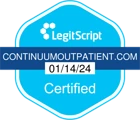Post-traumatic stress disorder (PTSD) is a mental health condition that can develop after experiencing or witnessing a traumatic event. It is a complex disorder that affects millions of people around the world. The symptoms of PTSD can be severe and can interfere with daily life. However, with the right treatment and support, people with PTSD can recover and lead fulfilling lives. In this article, we will explore the symptoms of PTSD and what you should do if you think you have PTSD.
Symptoms of PTSD
The symptoms of PTSD can be divided into four main categories: intrusive memories, avoidance, negative changes in mood and cognition, and hyperarousal. Let’s take a closer look at each of these categories:
-
Intrusive Memories: People with PTSD may experience intrusive memories of the traumatic event. These memories can be in the form of flashbacks, nightmares, or recurring thoughts. These memories can be triggered by anything that reminds the person of the traumatic event, such as a sound, smell, or visual cue.
-
Avoidance: People with PTSD may go to great lengths to avoid anything that reminds them of the traumatic event. They may avoid people, places, or activities that are associated with the trauma. They may also avoid talking or thinking about the trauma altogether.
-
Negative Changes in Mood and Cognition: People with PTSD may experience negative changes in their mood or thinking. They may have a negative outlook on life, feel detached from others, or have difficulty experiencing positive emotions. They may also experience memory problems or difficulty concentrating.
-
Hyperarousal: People with PTSD may feel constantly on edge or easily startled. They may have difficulty sleeping or have trouble concentrating. They may also be irritable or have outbursts of anger.
What to Do if You Think You Have PTSD
If you think you have PTSD, it is important to seek help from a mental health professional. Here are some steps you can take:
-
Talk to Your Doctor: Start by talking to your primary care physician. They can refer you to a mental health professional who can help you manage your symptoms. They can also rule out any other underlying medical conditions that may be contributing to your symptoms.
-
Seek Professional Help: There are several evidence-based treatments for PTSD, including cognitive-behavioral therapy (CBT), eye movement desensitization and reprocessing (EMDR), and medication. CBT focuses on identifying and changing negative thoughts and beliefs related to the traumatic event, while EMDR uses eye movements or other types of sensory input to help process traumatic memories. Medication, such as antidepressants, can also be effective in managing symptoms of PTSD.
-
Join a Support Group: Support groups can be an effective way to connect with others who have experienced similar traumas and can provide a safe space for sharing experiences and coping strategies. Many mental health organizations offer support groups for people with PTSD.
-
Take Care of Yourself: Taking care of yourself is an important part of managing PTSD. This includes getting enough sleep, eating a healthy diet, and exercising regularly. Mind-body practices, such as yoga or meditation, can also be effective in managing symptoms of PTSD.
-
Practice Self-Care: Practicing self-care is an essential part of managing PTSD symptoms. This includes engaging in hobbies or activities that bring joy and pleasure, setting healthy boundaries, and practicing relaxation techniques, such as taking a warm bath or listening to calming music. It is important to prioritize self-care as part of an overall plan for managing PTSD.
In conclusion, PTSD is a complex mental health condition that can have a significant impact on a person’s life. If you think you have PTSD, it is important to seek help from a mental health professional.
Learn about the alcohol treatment program with Continuum Outpatient.


